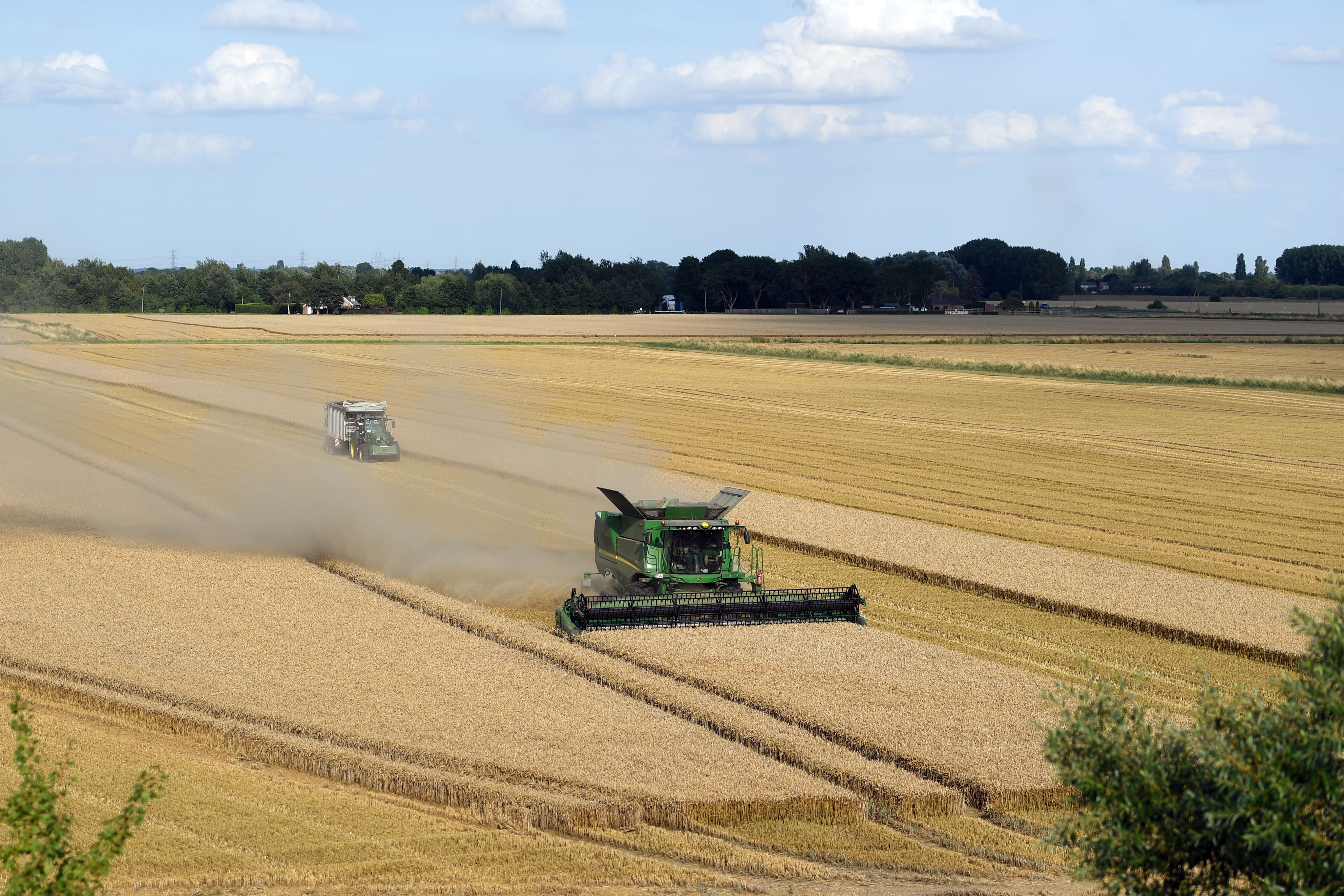Producing food is ‘primary purpose’ of farming, Environment Secretary says
A speech by Steve Reed will outline measures to boost sector profits in the wake of protests against the Government by farmers.

The primary purpose of farming is food production, Steve Reed will insist as he outlines measures to boost profits in a bid to reset relations with the sector.
In a speech to the Oxford Farming Conference on Thursday, the Environment Secretary will also say farmers must be supported to restore nature and diversify their incomes to achieve long-term food security.
The speech comes in the wake of a furious backlash to the new Government from farmers over measures in last year’s budget, including introducing inheritance tax for agricultural businesses worth more than £1 million and a faster phaseout of EU-era subsidies in favour of environmental payments.
Some farmers have claimed the changes threaten food security while concerns have been raised government policy in recent years has focused on nature protection and other land uses over food production.
Mr Reed will set out reforms as part of the Government’s “new deal for farmers” to back British produce and production, diversify incomes, ensure fair supply chains and protect farmers in future trade deals.
The measures include monitoring where food bought for the public sector comes from, as a first step to deliver on Labour’s manifesto pledge for half of all such food to be locally sourced or meet higher environmental standards.
The Government says it will be the first time such monitoring has taken place and is expected to prompt behaviour change that will make it easier for British farmers to win a share of the £5 billion spent each year on catering in schools, prisons, hospitals and other parts of the public sector.
Mr Reed will also pledge to ensure planning reforms will make it quicker for farmers to build barns and other infrastructure on their farms to boost food production, and help them diversify their businesses with farm shops and holiday lets.
Reforms are already making it easier for farmers to install solar panels on roofs and barns, and new measures could enable them to diversify income through putting up wind turbines and connecting onsite generation to the grid, the Environment Department (Defra) said.
Helping farmers to diversify their income is key to making businesses profitable and keep them going during shocks to the sector such as bad harvests or supply disruptions, officials argue.
The primary purpose of farming has - and always will be - to produce the food that feeds the nation
Mr Reed will tell delegates at the conference: “The primary purpose of farming has – and always will be – to produce the food that feeds the nation.
“Too many policymakers in Whitehall lose sight of that fact. This Government is putting food production firmly back on the agenda.”
He is also expected to say: “We will work in partnership to achieve our vision for the farming sector.
“First, a sector whose primary purpose is food production. Secondly, a sector where farmers can access diverse income streams to make a fair profit and ensure their business remains viable in times of challenge.
“And, thirdly, a sector which supports farmers to restore nature – the foundations of sustainable food production.
“It is only through pursuing all three that we will achieve long-term food security.”
A new deal for farmers must enable a meaningful transition to nature-friendly farming that is both well-funded and fair
National Farmers’ Union president Tom Bradshaw said the announcement “fundamentally fails to recognise that the industry is in a cash flow crisis with the lowest farmer and grower confidence ever recorded”.
“Devastating inheritance tax changes, national insurance hikes, crippling cuts to direct payments and delays to environmental schemes mean many businesses won’t survive to benefit from the ‘new deal’,” Mr Bradshaw said.
He called on ministers to face up to the reality of challenging market conditions, pause and consult on the proposed changes to inheritance tax and review the delays and challenges to agri-environmental schemes.
“To have a genuine reset moment with farmers and growers after the inflationary budget, all of these issues need to be addressed,” he said.
Meanwhile, Sofia Parente, head of policy at WWF, said: “For too long farmers have borne the brunt of fixing our broken food system, without adequate support from government and across the supply chain to help them move to sustainable practices.
“A new deal for farmers must enable a meaningful transition to nature-friendly farming that is both well-funded and fair.
“A first step to deliver on the promise to protect farmers in trade deals would be to take bold, decisive action such as setting core environmental standards in domestic law so that UK farmers are not undercut by substandard imported products with higher environmental impacts.”
Bookmark popover
Removed from bookmarks